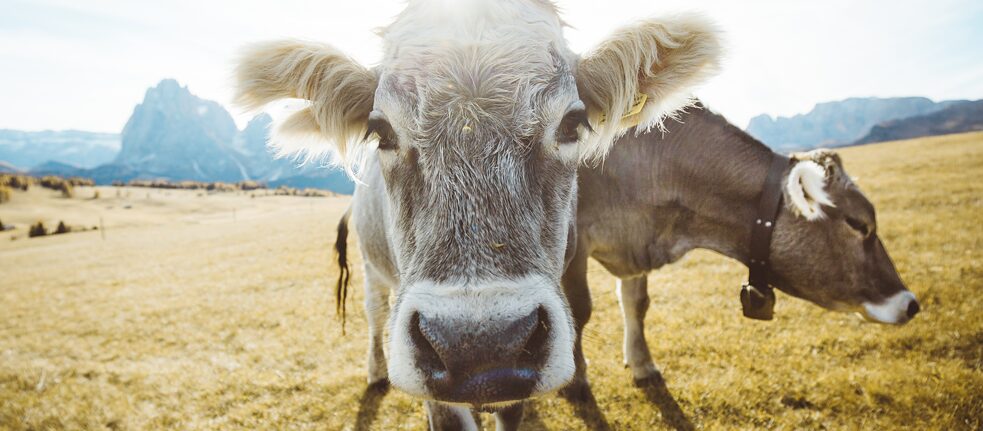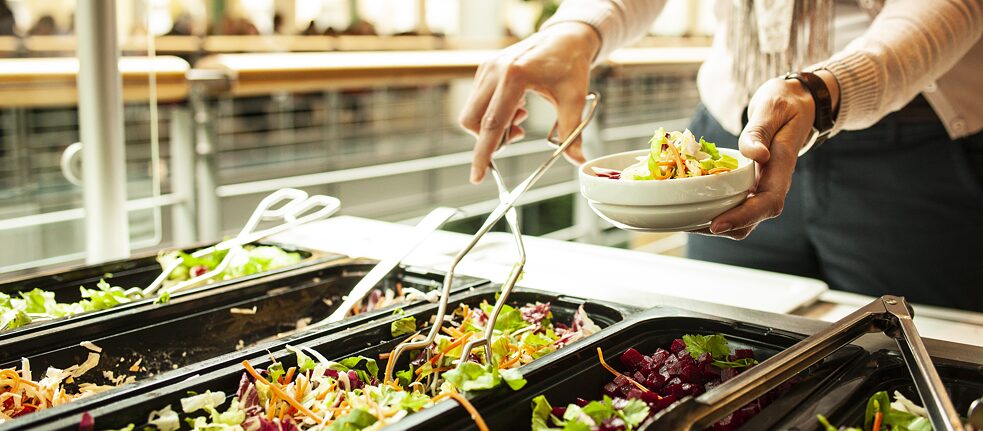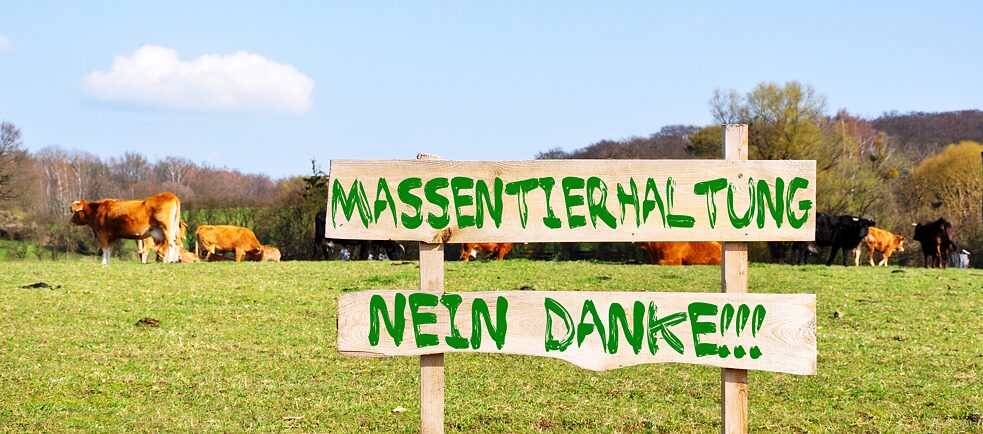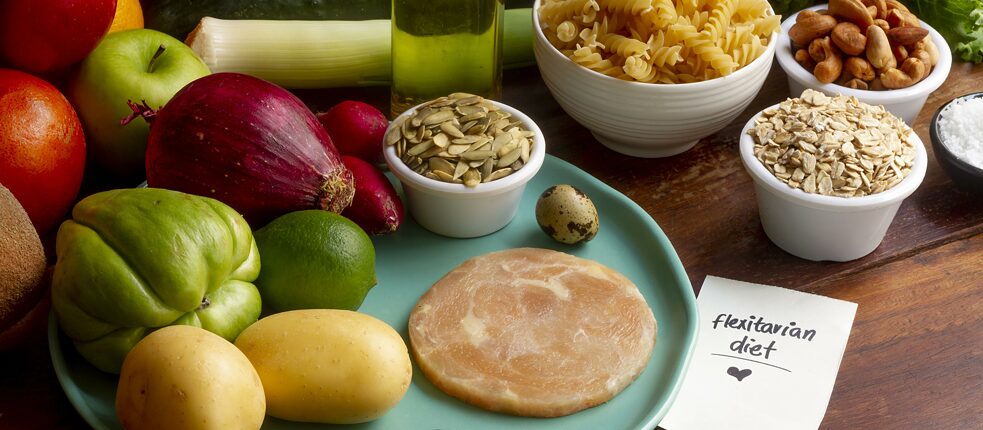Flexitarianism
Climate protection on the menu

According to a survey commissioned by the German Federal Ministry of Food, more than half of all Germans, around 55 per cent, describe themselves as “flexitarians”. What is behind this term, what do these people eat and can food be political?
By Petra Schönhöfer
The average German, it is often said, loves his or her bratwurst. Accordingly, he or she consumes an average of around 800 grams of meat per week. This is not only unhealthy – the medically recommended amount is between 300 and 600 grams – but also harmful to the climate. The reason for this is that together with milk and dairy products, according to current estimates, this meat consumption causes around 70 percent of diet-related greenhouse gas emissions. The proportion of vegetarians, i.e. people who do not eat meat, is only around five percent in Germany, and only one percent of Germans eat vegan, i.e. completely plant-based.
Quite a lot, however, can be achieved by reducing meat consumption. And this is where the flexitarians come into play – they might well be omnivores, but meat plays a subordinate role in their diet. About 470 grams of it ends up in their pots and pans on average each week. This corresponds to about two meatballs and two fried sausages. Many flexitarians also state that they consciously only choose high-quality or organic meat.
Good for the climate
People who consciously eat little meat are more likely to keep the world in ecological balance than meat fans. This is the result of a study that WWF Germany carried out in spring 2021 together with the consultancy corsus – corporate sustainability GmbH. If the meat consumption of all Germans were to halve, the ecological balance would look much better. The food-related greenhouse gas emissions of currently around 210 million tons of CO2 equivalents per year could be reduced by 27 percent (56 million tons). In addition, the low-meat diet would also reduce Germany’s current food-related land requirement by almost three million hectares. That corresponds roughly to the size of the German federal state of Brandenburg. Meat consumption in Germany has in fact already fallen – in 2016, according to the environmental organisation WWF, Germans were actually still consuming over a kilo of meat per person per week – but more still needs to be done.That is why the WWF is advocating a general rethink. When catering for events or for people travelling, there should automatically be a vegetarian menu available, says Tanja Dräger de Teran, consultant for nutrition and agriculture at WWF Germany. “Anyone who wants meat, ticks that box separately.” Obligatory minimum criteria for catering in public institutions such as schools might also be an option.
 Because the students want it that way – in future, meat and fish will only make up four per cent of the menu at Berlin universities. (Symbol image)
| Photo (detail): © Adobe
Because the students want it that way – in future, meat and fish will only make up four per cent of the menu at Berlin universities. (Symbol image)
| Photo (detail): © Adobe
POLITICISED EATERS
An approach that is already being adopted in reality – from the winter term 2021-2022, meat and fish is only to make up four per cent of the menu at Berlin universities. The rest of the food on offer will be vegetarian or vegan, in response to the requests of the students. Young people differ greatly in their eating habits from the older generation when it comes to meat consumption – this was the result of the study “Jugendreport zur Zukunft nachhaltiger Ernährung” (Youth Report on the Future of Sustainable Nutrition), which scientists from the Georg-August University in Göttingen published together with the Zühlsdorf Partner Agency. In the 15 to 29 age group, 40 per cent call their meat consumption into question. 12.3 per cent of them are vegetarians or vegans and 23.8 per cent say they are flexitarians. Most of them are “politicised eaters” – for two thirds of all young people surveyed, stopping climate change is a matter of human survival – also through eating habits. In addition, there is a critical attitude towards the meat industry and today’s factory farming industry as further motives for abstaining from meat. “Politicised Eating” is the catchphrase among 15 to 29 year olds – many young people reduce their meat consumption for climate protection reasons or in protest against factory farming.
| Photo (Detail): © Adobe
Of the 60 to 75 year olds, only five per cent describe themselves as vegetarians, vegans play no role at all statistically in this age group. On the other hand, flexitarianism is becoming more popular with advanced age – the proportion of 60 to 75 year olds has risen to 55 per cent. After all, a diet with whole grain products, pulses, fruit and vegetables, which often does without meat, is also healthy. This is, however, not only the case with regard to age groups, differences can also be observed between the sexes, as the veggie study of the PHW poultry processing group from 2021 shows – 63 per cent of women eat meatless at least sometimes, while 43 per cent of men do this.
“Politicised Eating” is the catchphrase among 15 to 29 year olds – many young people reduce their meat consumption for climate protection reasons or in protest against factory farming.
| Photo (Detail): © Adobe
Of the 60 to 75 year olds, only five per cent describe themselves as vegetarians, vegans play no role at all statistically in this age group. On the other hand, flexitarianism is becoming more popular with advanced age – the proportion of 60 to 75 year olds has risen to 55 per cent. After all, a diet with whole grain products, pulses, fruit and vegetables, which often does without meat, is also healthy. This is, however, not only the case with regard to age groups, differences can also be observed between the sexes, as the veggie study of the PHW poultry processing group from 2021 shows – 63 per cent of women eat meatless at least sometimes, while 43 per cent of men do this.
Adventurous omnivores
What, however, is put on the table when there is no meat? The most popular foods among flexitarians are potatoes, nuts and kernels, rice and peas. If flexitarians do have a craving for meat, they go for poultry products. This is followed by fish and beef, if possible from controlled organic agriculture. Incidentally, for a majority of Germans, meat produced from the reproduction of animal cells is an alternative to killing animals, but only around a quarter would try it. Disgust is the strongest barrier here. It is, and how could it be otherwise, the flexitarians who show the greatest willingness to try new things. Der flexitarische Speiseplan: Viel Gemüse, Nüsse, Nudeln – und ein wenig Fleisch.
| Photo (detail): © Adobe
Der flexitarische Speiseplan: Viel Gemüse, Nüsse, Nudeln – und ein wenig Fleisch.
| Photo (detail): © Adobe